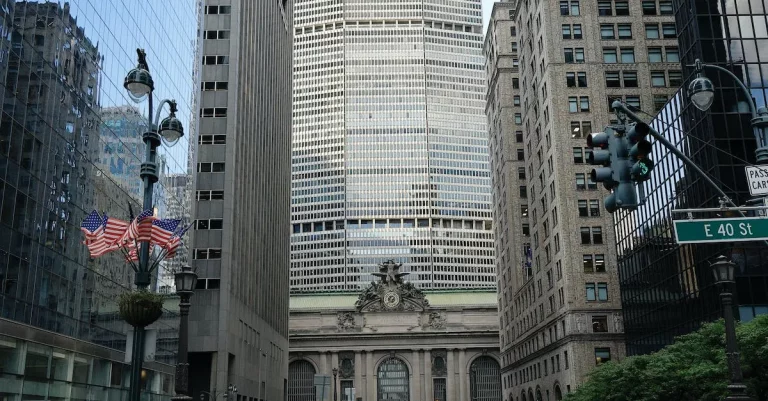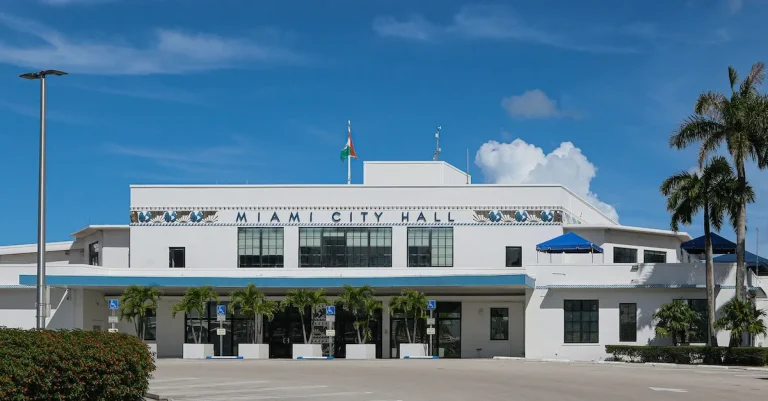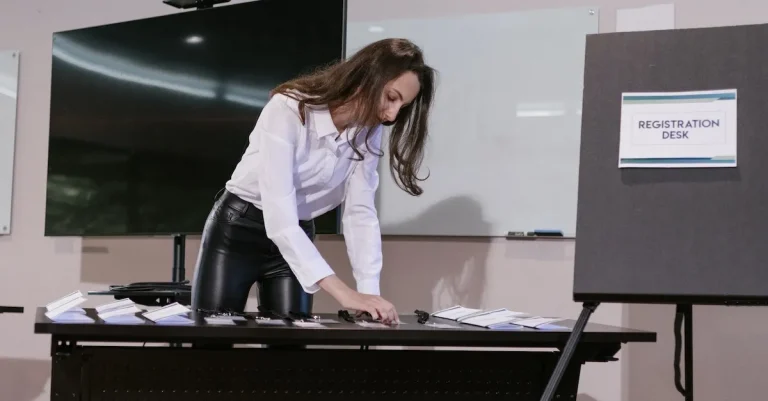What Happens If You Don’T Tip In New York?
Tipping is a standard practice in the service industry, especially in large cities like New York where tourism is prevalent. However, what are the ramifications if you fail to tip at restaurants, bars, taxis, salons or other businesses in New York?
If you’re short on time, here’s a quick answer: While tipping is expected and failing to tip can result in some backlash, there are no laws in New York that penalize customers for not leaving gratuity.
In this comprehensive guide, we’ll explore:
– The tipping culture and expectations in New York
– Potential consequences of not tipping
– Tipping alternatives and options
– Laws and regulations regarding tipping
– Answers to frequently asked questions
The Tipping Culture in New York
When it comes to tipping in New York, it is important to understand the city’s tipping culture. Tipping is a customary practice in the United States, and New York is no exception. In fact, tipping is not just a way to show appreciation for good service, but it is also an integral part of many workers’ income in the service industry.
From restaurants to hotels to taxis, tipping is expected and often greatly appreciated.
Typical Tipping Rates
Knowing the typical tipping rates in New York can help you navigate the city’s tipping culture. In restaurants, a standard tip is usually around 15-20% of the total bill. However, it is important to note that some restaurants automatically include a gratuity for larger parties, so be sure to check your bill before adding an additional tip.
In bars, it is customary to tip $1-2 per drink, or 15-20% of the total bill for a larger tab.
When it comes to services like taxis and food delivery, it is customary to tip around 15% of the total fare. Hotel staff, such as bellhops and housekeeping, also rely on tips. For bellhops, it is recommended to tip $1-2 per bag, while housekeeping staff can be tipped $2-5 per night.
It’s important to remember that these are just general guidelines, and tipping rates can vary depending on the level of service provided and your own discretion. If you receive exceptional service, don’t hesitate to show your appreciation with a higher tip.
Impact of Tourism
Tourism plays a significant role in New York City’s economy, and tipping is a crucial part of the hospitality industry. With millions of tourists visiting the city each year, the service industry heavily relies on tips to supplement the income of workers.
This is especially true for restaurant servers, who often earn a lower base wage and rely on tips to make a livable income.
According to the U.S. Bureau of Labor Statistics, the median hourly wage for waiters and waitresses in New York is $11.96, which is lower than the minimum wage. Tipping allows these workers to make up for the wage gap and earn a fair income.
By tipping generously, you are not only rewarding good service but also helping to support the livelihood of those in the service industry.
It is worth noting that some restaurants in New York have started implementing a “no-tipping” policy and instead include a service charge in the bill. However, this is still not the norm, and tipping is still widely expected in most establishments.
Consequences of Not Tipping in New York
Poor Service on Future Visits
One of the immediate consequences of not tipping in New York is the potential for poor service on future visits to the same establishment. Servers and other service industry workers rely heavily on tips to supplement their income, as their base wages are often lower than in other industries.
When customers consistently fail to tip or leave insufficient tips, it can create a negative impression among the staff. As a result, the next time you visit, you may experience slower service, less attentiveness, or even subpar treatment.
By not tipping, you risk compromising your overall dining experience.
Verbal Reprimands
In some cases, not tipping in New York may even lead to verbal reprimands from the server or establishment staff. While it is not common, particularly in more professional establishments, it can happen.
Servers work hard to provide excellent service, and when they feel their efforts are not adequately recognized, it can be frustrating. While it’s important to note that this is not the norm, it’s always best to avoid any potential confrontations by tipping appropriately.
Social Media Shaming
In today’s digital age, social media plays a significant role in shaping public opinion. If you don’t tip in New York and someone witnesses it, they may take to social media to share their experience. This can lead to online shaming, with individuals expressing their disapproval and potentially even naming and shaming the non-tipping customer.
The negative publicity can have long-lasting effects, not only on your reputation but also on the reputation of the establishment you visited. It’s essential to be mindful of your tipping practices to avoid any potential negative consequences in the age of social media.
Alternatives to Tipping
While tipping is customary in many places, there are some alternatives to tipping that you may come across in New York. These alternatives provide a different approach to compensating service staff and can be found in various establishments throughout the city.
Let’s explore a few of these alternatives.
Tip-Free Businesses
One alternative to tipping is the concept of tip-free businesses. In these establishments, the prices of goods and services are typically higher, but tipping is not expected or allowed. The idea behind tip-free businesses is to ensure that all employees are paid a fair wage, eliminating the need for customers to supplement their income through tips.
This approach aims to create a more equitable system for workers and customers alike.
Some popular tip-free businesses in New York include restaurants such as Sushi Yasuda and Dirt Candy. These establishments have chosen to incorporate the cost of service into their menu prices, allowing customers to enjoy their meals without the stress of calculating and leaving a tip.
Prepaid Gratuities
Another alternative to traditional tipping is the concept of prepaid gratuities. This practice is commonly seen in hotels and cruises, where a service charge is automatically added to your bill to cover the gratuities for the staff.
The prepaid gratuities are then distributed among the employees based on a predetermined formula.
Prepaid gratuities can be convenient for travelers, as it eliminates the need to carry cash or calculate tip amounts. It also ensures that all staff members receive a fair share of the gratuities, regardless of whether they interact directly with customers or work behind the scenes.
Pool Tipping
Pool tipping is another alternative to individual tipping that you may encounter in certain establishments. Instead of tipping individual service staff, a pool tip is collected and distributed among all employees.
This approach promotes teamwork and ensures that everyone in the establishment is recognized for their contributions.
Pool tipping can be found in various industries, including restaurants, bars, and salons. It is often implemented to create a more inclusive and cooperative work environment, where all employees are equally valued and rewarded for their efforts.
It’s important to note that while these alternatives to tipping exist, tipping is still a prevalent practice in New York. It is customary to tip in most situations, and service staff rely on gratuities as a significant part of their income.
The alternatives mentioned above are simply options that some establishments have chosen to adopt.
For more information on tipping practices and alternatives, you can visit websites such as NYCGo.com or Time Out New York.
Laws and Regulations Regarding Tipping
When it comes to tipping in New York, there are specific laws and regulations in place that both customers and service industry workers should be aware of. These regulations ensure fair treatment for workers and appropriate compensation for the services provided.
Understanding these laws can help avoid any misunderstandings or legal issues related to tipping.
No Legal Obligation to Tip
In New York, there is no legal obligation for customers to tip. Tipping is considered a voluntary act of gratitude for good service. However, it is important to note that tipping is customary in many industries, such as food service and hospitality, and not tipping can be seen as disrespectful or rude.
It is always recommended to acknowledge and appreciate the hard work of service industry workers by leaving a tip.
Tip Credits
New York also has specific rules regarding tip credits, which allow employers to pay their employees a lower minimum wage if they receive tips. The current minimum wage in New York is $15 per hour for most employees, but for tipped employees, the minimum wage can be lower, as long as their tips bring their total earnings up to the regular minimum wage.
Under the New York Labor Law, employers must inform their tipped employees about the tip credit and ensure that they receive the full minimum wage when tips are taken into account. If an employee’s tips combined with their hourly wage do not reach the regular minimum wage, the employer is required to make up the difference.
It is important for both employees and customers to be aware of the tip credit regulations to ensure fair compensation for service industry workers. Employers should properly inform their employees about the tip credit system, while customers should consider the impact of their tips on the overall income of the workers.
For more information on New York labor laws and regulations regarding tipping, you can visit the official website of the New York State Department of Labor at https://labor.ny.gov/home/.
FAQs About Tipping in New York
Is it rude not to tip in New York?
Tipping is a common practice in the United States, including New York, and not tipping can be perceived as rude. In the service industry, tips are an important part of a worker’s income, and they rely on them to make a living.
It is customary to tip waitstaff, bartenders, taxi drivers, hotel staff, and other service providers in New York. By not tipping, you may be sending a message that you were dissatisfied with the service, which could lead to strained relationships with the staff.
Can I be kicked out for not tipping?
While it is unlikely that you will be directly kicked out of a restaurant or establishment for not tipping, not leaving a tip could have consequences. Since tipping is expected in New York, not tipping may result in poor service in the future.
Servers may prioritize other customers who are more likely to tip, and you may receive slower or less attentive service. It is important to note that some establishments may automatically include a gratuity charge for large groups, so be sure to check the bill before leaving no additional tip.
Additionally, it’s essential to understand that not tipping can tarnish your reputation as a customer. Servers and other service providers may remember you if you consistently do not tip and may choose to prioritize other customers who are more inclined to tip.
This could result in receiving subpar service or being overlooked for special treatment or requests.
It is always a good idea to be mindful of the local customs and expectations when it comes to tipping. While tipping is not legally required, it is considered customary and part of the social etiquette in New York.
Conclusion
Tipping is ultimately a social convention and failing to tip in New York can damage relationships with service staff and businesses. While tipping is not legally required, it is culturally expected. The best approach is to tip appropriately whenever you receive good service in New York City.








